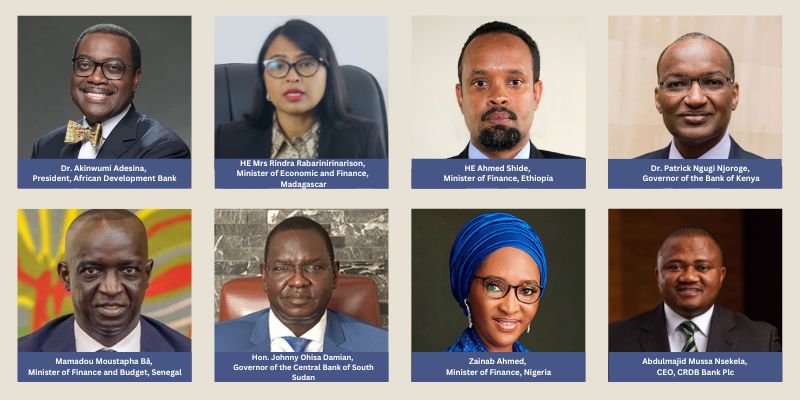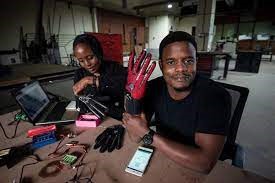Reactions of the Opposition Parties, the Ruling Party Observers, the International Community, the Legal Battles.
The thrills and frills of electioneering and politicking for Nigeria’s Presidential seat have come to an end following the conduct of the February 25 election which saw the APC candidate, Bola Ahmed Tinubu being declared the winner by the Independent National Electoral Commission (INEC). With the days counting, attention has now shifted to the courts as aggrieved candidates and parties seek to challenge the outcome of the election. This article will focus on the reactions that followed the election and the declaration of the winner as well as the tribunal, political parties whose candidates contested the election and the Independent National Electoral Commission, INEC.
Section 137 ( 7&8) of the Nigerian electoral act 2022 stipulates that an election petition must be filed within 21 days after the date of the declaration of results of the elections while the tribunal under the law shall also deliver judgement in writing within 180 days from the day of filing of the petition.
However, if a candidate is not satisfied with the outcome of the tribunal, they can approach the Supreme Court, which will deliberate on an appeal within 60 days.
Opposition Party’s Reactions to Declaration of Tinubu as Winner
Immediately after the declaration of the Presidential election winner, opposition parties like the Labour Party, the People’s Democratic Party and others expressed displeasure at the processes and outcome of the election stating that it was conducted without adhering to the constitution, the electoral act and INEC guidelines on the conduct of the election.
Among other things, some of the opposition parties called for the outright cancellation of the election while others asked for a rerun of the election.
After so many considerations, some of the aggrieved parties and candidates have taken their fight to the presidential election tribunal.
Precisely, on 21st March, 21 days after INEC Chairman, Professor Mahmood Yakubu, declared Tinubu the winner of the presidential election, having polled a majority of the votes cast, Labour Party Presidential candidate, Peter Obi and the People’s Democratic Party Candidate, Atiku Abubakar filed their petitions legally challenging the election result and Tinubu’s declaration as the winner.
In his petition, Peter Obi requested to be declared as the rightful winner of the election while the All Progressives Congress, APC candidate Bola Tinubu, and his vice should be disqualified for their wrongful nomination.
On his part, Atiku Abubakar also asked the election tribunal to declare him the winner of the February 25 election or nullify the election and order a rerun due to alleged irregularities that marred the election.
Comments from the Ruling Party
Though, in the lead, the All Progressives Congress, (APC) also has its grievances with the election. As such, its presidential campaign council after the election said it would also go to court to challenge the results scored by the candidates of the Peoples Democratic Party (PDP), Atiku Abubakar and Labour Party (LP), Peter Obi at the presidential election.
And just as the hearing on the petitions began, the APC asked the Presidential Election Petition Tribunal to dismiss the petition filed by the presidential candidate of the Labour Party (LP) Peter Obi, faulting the petition on many grounds.
The APC is challenging the court’s jurisdiction to hear the petition because it is, among others, incompetent.
Furthermore, among APC’s grounds for challenging the competence of the petition is that Obi was not a valid member of the Labour Party at the time of the election.
In the same vein, the party has also asked the presidential election petition tribunal to dismiss petitions filed by three political parties against the return of its candidate, Bola Tinubu, as president-elect.
The three political parties are the Action Alliance (AA), Allied Peoples Movement (APM) and Action Peoples Party (APP).
In all of these, the APC has not been quiet despite being the winning party and the co-defendant in all the petitions.
Observers report
Different groups of observers were in Nigeria to monitor the just concluded elections.
Coming together under one body to present their report on the presidential election, the Coalition of international election observers blamed the electoral commission, INEC, for a lack of transparency in the conduct of the 2023 presidential and national assembly elections in Nigeria.
The Joint Election Observation Mission, involving the International Republican Institute (IRI) and the National Democratic Institute (NDI) was led by Joyce Banda, former President of Malawi.
According to the election observers, the late opening of polling locations and logistical failures created tensions and affected the secrecy of the ballot which saw it being compromised in some polling units.
They noted that at the close of the polls, challenges with the electronic transfer of results and their upload to a public portal promptly undermined citizen confidence at a crucial moment of the process.
It further said inadequate communication and lack of transparency by the electoral body, INEC, created confusion and eroded voters’ trust in the process hence disenfranchising some voters.
Above all these, the observers commended Nigerians for their commitment to the democratic process aimed at sustaining democracy in the country as well as their resilience and enthusiasm to participate in the process and make their voices heard.
Legal battles
Apart from the major issues of alleged malpractices and non-conformity to electoral laws brought to the presidential election tribunal, some other constitutional issues are also being pushed forward at the tribunal to be addressed as a determinant for whosoever becomes president.
One such is the issue of the 25% of votes cast in the Federal Capital Territory and the position of the law on the electronic uploading and transmission of election results at the polling units.
The petitioners expect the court to interpret the laws to establish whether the electoral body, INEC, has gone against the law on electronic transmission and also interpret the 25% votes of the FCT to establish who rightfully won the presidential election.
Going Forward
Though the elections are over, all eyes are still on Nigeria awaiting the outcomes of the various election litigations before the Presidential Election tribunal.
This is not far-fetched as Nigeria is Africa’s largest democracy and also due to its political and economic influence on the continent. So, Nigeria getting it right is crucial for the entire continent as the stability of democracy in Nigeria will continue to serve as a beacon of hope for other African countries and their democracies.


